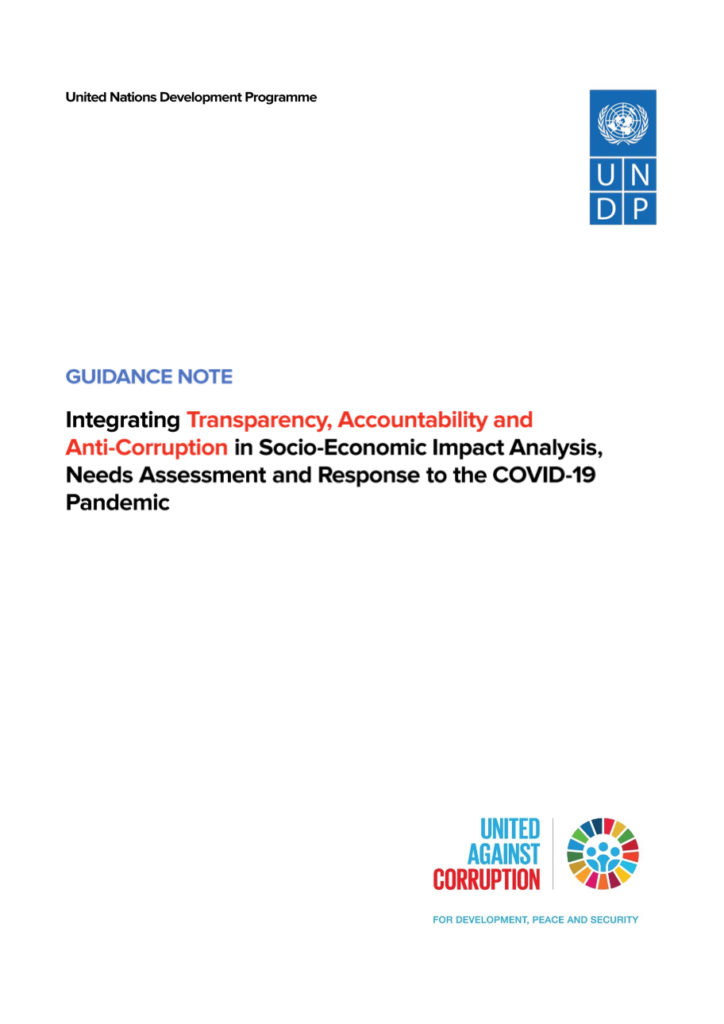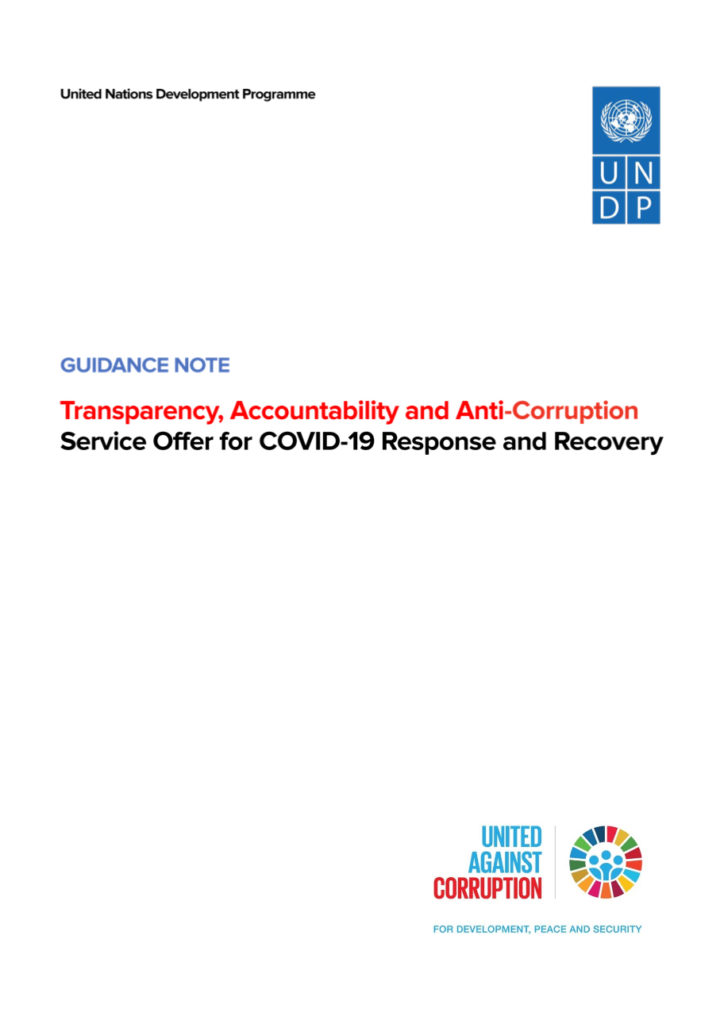UNDP’s Global Anti-Corruption Programme has published two new knowledge products on Integrating Transparency, Accountability and Anti-Corruption in COVID-19 Response and Recovery:

The COVID-19 pandemic is far more than a health, humanitarian or socio-economic crisis; it is also a governance crisis, testing the resilience of governance institutions and systems to support societies and economies to recover from the ramifications of COVID-19. In particular, corruption and its consequences significantly impact COVID-19 response and recovery. This Guidance Note presents UNDP’s offer in supporting countries to integrate transparency, accountability and anti-corruption in both response and recovery priorities.
To build forward better, UNDP’s Next Generation of Anti-Corruption programming aims at strengthening the role of oversight and anti-corruption institutions for sustainable development; promoting social accountability and the role of civil society; strengthening business integrity; and harnessing the benefits of technology and innovation to enhance transparency and openness. These will contribute to all five pillars of the UN’s framework on socio-economic response to the COVID-19 pandemic, with the recognition that effective and accountable governance systems and processes are critical for progressive socio-economic change.

As the technical lead for the socio-economic response to the COVID-19 pandemic in the UN system, UNDP and its COs worldwide are working to assess the socio-economic impacts of the COVID-19 pandemic on economies and communities to develop and implement effective strategies for COVID-19 response and recovery. Although there is recognition that COVID-19 impacts governance systems, processes and institutions, existing socio-economic impact analyses have not specifically assessed the links between them, and in particular, the impact of corruption and a lack of transparency and accountability on COVID-19 response and recovery. These are largely due to two main challenges: a lack of knowledge and guidance on how to integrate transparency, accountability and anti-corruption in socio-economic impact analysis; and a lack of coordination between anti-corruption institutions and the institutions focusing on socio-economic aspects.
This guidance note thus provides a practical methodology, including checklist questions, on how to integrate transparency, accountability and anti-corruption in social and economic needs assessment and response in the context of COVID-19.


